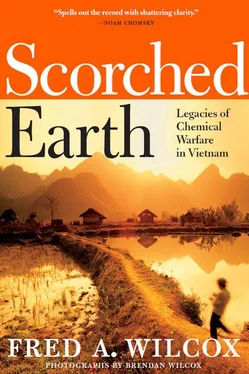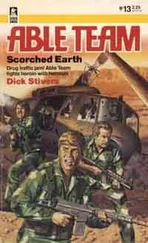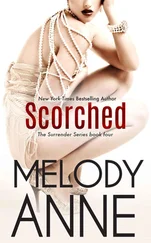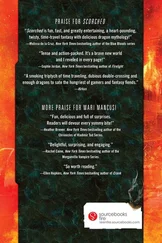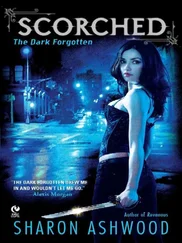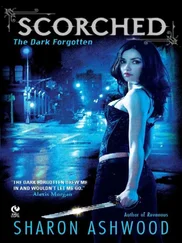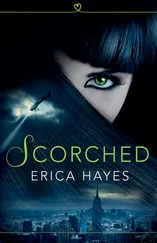Herrmann became the liaison between Saigon regime troops and his unit. Then, accompanied by about fifty South Vietnamese soldiers, he relocated to a small knoll along the Tu Bon River. His mission was to establish a displaced persons’ village farther west than his unit had ever gone.
During the following months, Herrmann resettled thousands of people and arranged for food distribution, medical care, housing construction, a school, and assistance from agricultural experts.
“This was my village,” he recalls. “These were my people. The battalion created a no-fire zone around Hiep Duc Village. Troops firing at my people were seen by me as the enemy. They were attacking what quickly became my family. An odd family it was. The people were malnourished. Most had malaria and severe skin disorders. A number had leprosy. Many bore the scars of battle. A four-year-old girl wandered in one morning with her brain exposed; somehow still able to walk. An American grenade had blown off part of her skull.
“I wasn’t a very skilled warrior. The first time under fire I was with a rifle platoon near the village. There was the sound of something flying quickly by my ear. People were screaming, ‘sniper,’ and I just lay on the ground while grunts fired on full automatic into the trees and bushes. Silence, and a soldier joking, ‘Man, you almost bought it.’ That round missed me by less than an inch. I can still hear the sound.”
Herrmann still finds it hard to believe that the military would give him, a reluctant warrior, the responsibility for about 2,000 people who were malnourished, frightened, wounded, and ridden with malaria and other diseases.
“This was Hiep Duc in 1968–1969. Almost daily mortar attacks, snipers, firefights. Imagine having absolutely no idea what to do in such a position, just flying by the seat of your pants. The military never acknowledged my ignorance. The US Army informed me that I knew what to do, and that I was doing a good job. I agreed. Completely.”
The military thought it always knew more than the Vietnamese, and this self-righteous attitude made Herrmann and other soldiers feel successful. He was awarded a Bronze Star and the Saigon government’s Cross of Gallantry. One month after he arrived home, the valley exploded in some of the fiercest fighting of the war. Herrmann wondered who had received his .45 pistol and M-16, and if that soldier, and the one after that, had survived the war.
“I was met by relatives at the Buffalo airport. My nephew was about nine and asked me at the airport what I had done in the war. His father said, ‘We won’t talk about this.’ I didn’t until years later. I drank for medicinal purposes, relived fire-fights and insanity each night, and pretended the war I carried with me had ended with my return in 1969. It did not.”
In 1998, a couple of friends asked Herrmann if he would travel to Vietnam with them. At first, he refused, but in time he agreed to go.
“We spent much of our time,” laughs Herrmann, “hiding in hotels, and the rest visiting places where we had served. I returned to Hiep Duc.”
At first, he didn’t recognize the village where he’d lived for a year. Foliage hid the ravages of war; he couldn’t smell defoliants or napalm. People told him that the tin smells in the air and the off-green color of the countryside were due to dioxin.
“I knew this was my old village when I saw the familiar riverbanks, the small knoll where I’d lived in a culvert, a sandbagged hole; and the surrounding mountains on which so much American and Vietnamese blood had been shed. This was the place that local myth taught was filled with the unsettled spirits of the thousands who had died liberating their nation.”
This was the beginning of Ken Herrmann’s healing. He wanted to learn about Vietnamese history, culture, religious practices, and literature. He hoped to get to know the people his generation had been taught to hate and trained to kill. He hoped one day to create a study abroad program for students at SUNY Brockport, the college where he was a Social Work professor. A few years later, he managed to do just that.
In this program, students spend a semester in Danang studying Vietnamese language, culture and history, offering English language lessons to Vietnamese children, visiting and assisting Agent Orange families, and delivering food and other supplies to a leper colony accessible by boat.
Herrmann wants students to get out of the classroom and meet Vietnamese people, to experience Vietnam’s 4,000 year-old culture, and to understand the toll that decades of warfare have taken on Vietnam. At one point, he wrote an article in a Vietnamese newspaper suggesting that people write to him about the effects of Agent Orange on their families. Letters poured in from all over the country, and before long he had boxes filled with more than 4,000 accounts of suffering and urgent pleas for help from men, women, and children.
In some cases, the letter-writer was exposed to Agent Orange while fighting in the war. In others, writers were the children or grandchildren of parents who ate food and drank water contaminated with Agent Orange.
Herrmann calls these letters “a chronicle of courage, determination, and hope. They are also an account of illness, poverty, bewilderment, and despair. Writers want to know why the country that waged a scorched earth campaign in Vietnam is unwilling to help them. Has America forgotten about Vietnam? Is Agent Orange/dioxin mutagenic? How many years, how many victims, will it take for Vietnam to be free of the curse of dioxin?”
LETTERS
Nam Dinh, June 02, 2004
To: SUNY Brockport from a rural village in North Vietnam.
Before April 1975, my husband fought in the Liberation Army in South Eastern Vietnam. Agent Orange affected him during this time. We married after he came back from the war. We have three children who are also affected by Agent Orange. All three of them are paralyzed. They cannot do anything by themselves. I have to be around to provide twenty-four-hour care.
Although we are receiving care and assistance from the local government, this still is not enough to recover from this endless pain.
I suggest that your program send these letters to the US president, the Americans, and the company producing this deadly agent. They must be aware of our ongoing pain and should officially apologize to my people and compensate for what they have caused in my country.”
Thank you, Bui Thi Bon

To Prof. Kenneth Herrmann, director
SUNY Brockport Veteran Program
I am writing this letter in response to the appeal you made in the Thanh Nien Newspaper on May 24, 2004.
My name is Ho Van Xanh. I was born in 1936 in Phuoc Son Hiep Duc, Quang Nam. I am from the ethnic minority group. During the war between the US and Vietnam, I saw the US helicopters dumping Agent Orange onto my hometown. Right after that all of the plants and vegetables were killed. I am an ethnic minority group so I spent all of my life in the mountainous area. I ate vegetables and drank water from this area.
I have had arthritis since 1975. It is getting worse over time.
My granddaughter was born in 2002. When she was born she had little black moles on her skin. Over time, these black spots have gotten much bigger. They cover the right side of her body, are on her face, legs and arms, and are still spreading. On these black areas she is also growing fur similar to an animal.
Thank you. Ho Van Xanh

Professor Kenneth Herrmann
Director of the SUNY Brockport Vietnam Program
I am Le Quang Chon. I am 54 years old.
I would like to present my family’s circumstances.
Читать дальше
